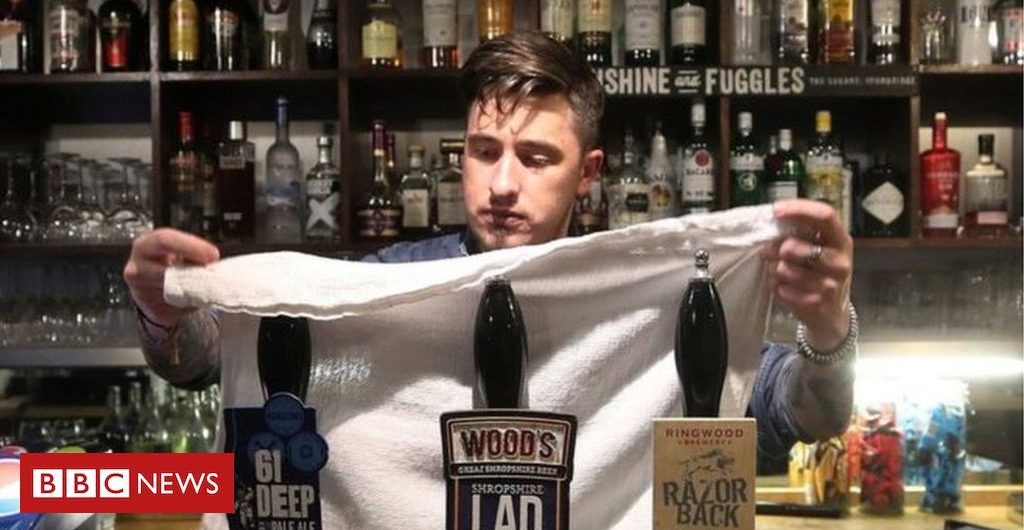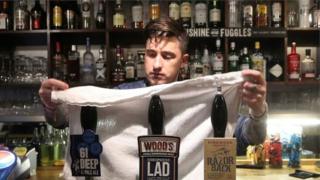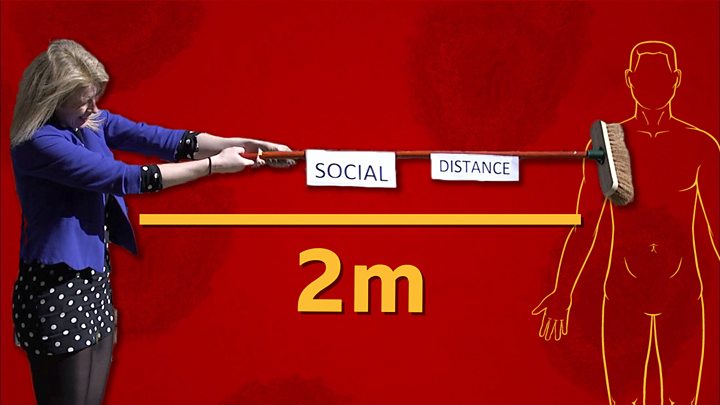- in Science
Science Coronavirus: NI hotels and cafes could reopen in early July

Science
 Image copyright
Image copyright
PA Media
The plan could see pubs, along with hotels and cafes, open sooner than originally anticipated
Hotels, bars and cafes could reopen on 3 July in Northern Ireland if the Stormont executive agrees to the plan.
BBC News NI has been told ministers will consider a timetable of opening at their executive meeting on Monday.
The proposal aimed at restarting Northern Ireland’s hospitality sector is contained in a plan put together by Economy Minister Diane Dodds.
The plan would also mean self-contained caravans and holiday lets could be used from 26 June.
Hotels were scheduled to open on 20 July but many in the industry have been pressing for an earlier date.
From 3 July all hotels, cafes, restaurants and bars that serve food should be allowed to open.
There were no coronavirus-related deaths recorded in Northern Ireland on Sunday.
The Department of Health’s death toll, which relates mostly to deaths in hospitals, remains at 541.
Economy Minister Diane Dodds’ plan is to be discussed by the executive on Monday
The move comes after industry representatives lobbied executive ministers to secure a reopening date.
It is estimated that the hospitality industry employs 65,000 jobs and is worth £2bn annually.
Deputy First Minster Michelle O’Neill confirmed to BBC Northern Ireland’s Sunday Politics programme there would be “significant announcements” in the days ahead.
She said a paper written by Mrs Dodds would be presented to the executive about reopening hotels, bars and cafes and she hoped the industry would be “content”.
Science The R-number
The Department of Health has confirmed the R number of the virus in Northern Ireland remains at between 0.5 and 0.9.
R is the number of people each infected person, on average, passes the virus on to and it has been at the heart of Stormont’s decision making. The goal is to keep R under one.
On Sunday, the department also released the scientific data behind how they calculate the number and other estimates on how prevalent the infection currently is in Northern Ireland.
It says the number of people who are infected with coronavirus is currently between 300 and 2,000 – the department says it cannot be more specific because of the large numbers of people who are asymptomatic.
Less than 5% of the population have recovered from Covid-19 and have detectable antibodies, the department suggests, meaning the majority of the population remain susceptible to the virus.
That means “any subsequent waves of the epidemic have the potential to be significantly worse” than the current outbreak, according to the department’s update.
Ms O’Neill said when the executive meets on Monday and Thursday, they would be “significant days”.
“We want to keep giving people that wee bit more to try to get back to some semblance of normality,” she said.
Mrs O’Neill said she did not feel “any pressure whatsoever” from the Republic of Ireland’s reopening.

Media playback is unsupported on your device
The news that a move on reopening the hospitality sector was imminent was greeted with delight from the industry.
Janice Gault, chief executive of the Northern Ireland Hotels Federation, said staff in the industry were working hard to make sure their premises were safe and secure for customers.
Colin Neill, chief executive of Hospitality Ulster, said it was important hoteliers and cafe owners were not put at a disadvantage as similar venues were opening in the Republic of Ireland on 29 June.
He urged the executive to scrap the 2m (6ft) social distancing rule and reduce it to 1m.
He argued the 2m rule meant it was not economically viable for some businesses to reopen.
With a 2m rule some businesses would only reach 30% of their normal turnover whereas at 1m it would rise to 70%, he added.
Both Arlene Foster and Michelle O’Neill, the first and deputy first minsters, say when it comes to reducing the social-distancing space they will be “guided by the science”.
Stormont ministers are also looking at the possibility of giving cafe and bar owners the chance to use pavements and other outside spaces to serve customers.
It is also expected some venues may have their entertainment restricted to prevent large crowds gathering on their premises.
